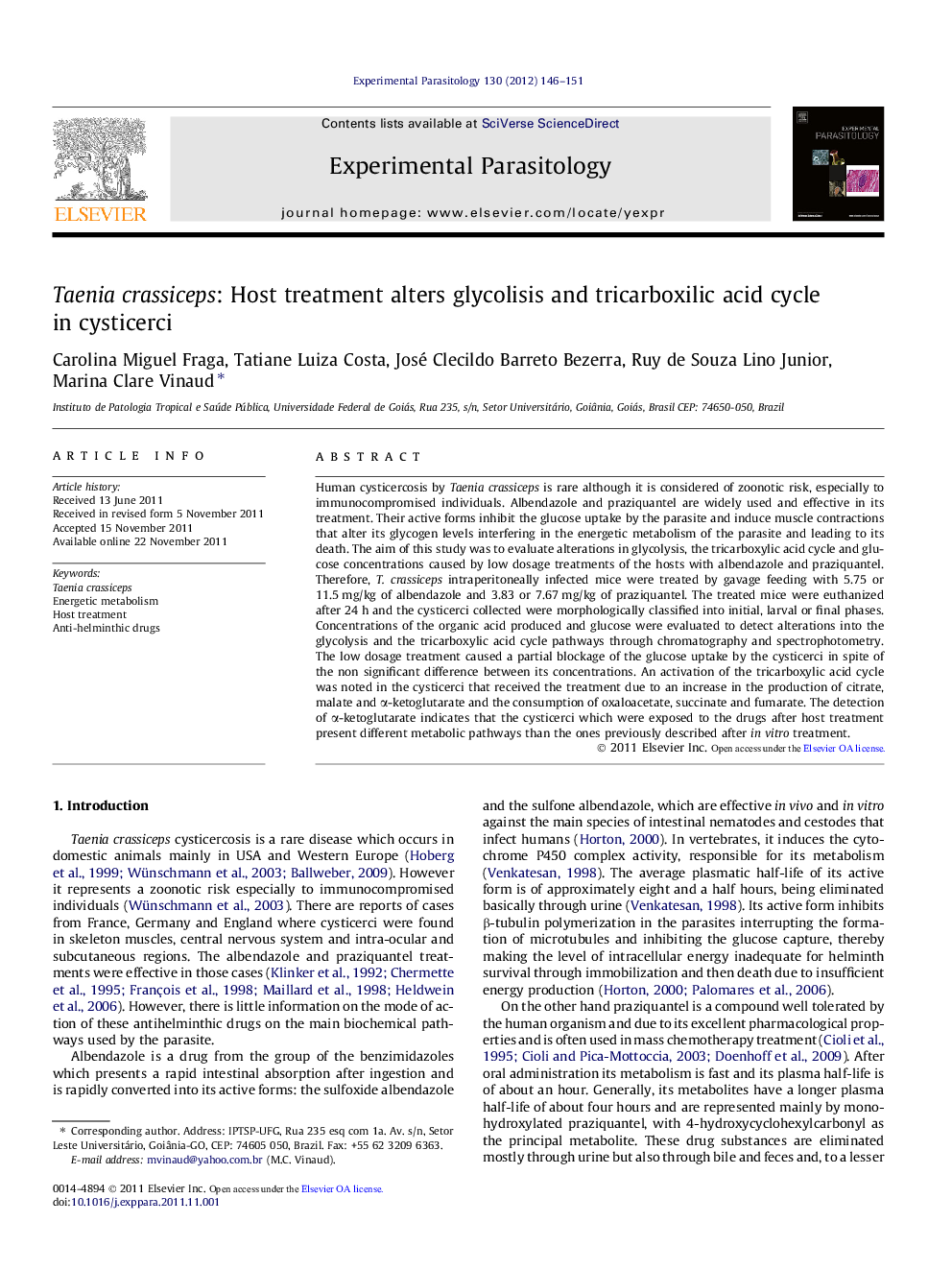| Article ID | Journal | Published Year | Pages | File Type |
|---|---|---|---|---|
| 6291802 | Experimental Parasitology | 2012 | 6 Pages |
Human cysticercosis by Taenia crassiceps is rare although it is considered of zoonotic risk, especially to immunocompromised individuals. Albendazole and praziquantel are widely used and effective in its treatment. Their active forms inhibit the glucose uptake by the parasite and induce muscle contractions that alter its glycogen levels interfering in the energetic metabolism of the parasite and leading to its death. The aim of this study was to evaluate alterations in glycolysis, the tricarboxylic acid cycle and glucose concentrations caused by low dosage treatments of the hosts with albendazole and praziquantel. Therefore, T. crassiceps intraperitoneally infected mice were treated by gavage feeding with 5.75 or 11.5 mg/kg of albendazole and 3.83 or 7.67 mg/kg of praziquantel. The treated mice were euthanized after 24 h and the cysticerci collected were morphologically classified into initial, larval or final phases. Concentrations of the organic acid produced and glucose were evaluated to detect alterations into the glycolysis and the tricarboxylic acid cycle pathways through chromatography and spectrophotometry. The low dosage treatment caused a partial blockage of the glucose uptake by the cysticerci in spite of the non significant difference between its concentrations. An activation of the tricarboxylic acid cycle was noted in the cysticerci that received the treatment due to an increase in the production of citrate, malate and α-ketoglutarate and the consumption of oxaloacetate, succinate and fumarate. The detection of α-ketoglutarate indicates that the cysticerci which were exposed to the drugs after host treatment present different metabolic pathways than the ones previously described after in vitro treatment.
Graphical abstractGluconeogenesis pathway: the first report of the oxaloacetate produced in the citric acid cycle used as a substrate for the formation of glucose in Taenia crassiceps (Pathway in bold is proposed from an adaption from Lehninger et al., 2006).Download full-size imageHighlights⺠Resident parasites metabolism of Taenia crassiceps cysticerci differs from in vitro. ⺠Blockage of glucose uptake induces gluconeogenesis in T. crassiceps cysticerci. ⺠First report of α-ketoglutarate in T. crassiceps cysticerci. ⺠Activation of the tricarboxylic acid cycle in cysticerci after host treatment.
